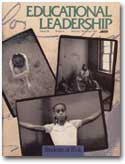I take my mother on a drive every Sunday. She is 94 and lives in a rest home, and she really looks forward to her weekly ride.
This past Sunday, we found ourselves talking about her work life as a young girl in a cording factory. Her memory of her early life is much sharper than her memory of recent events, so our best conversations frequently concern those early years. I can't do justice to her language and emotion, but her story was something like this: It was hard. And we were so tired at night. We were on our feet from seven in the morning until six at night, with only a half hour for lunch. I thought my stomach would fall out from all that standing. We each had over 100 machines to watch. And each one had five spindles. And when the thread ran out on a spindle, you had to change the spindle. And, boy, if you weren't careful, would you get a burn! Those spindles were so hot! I got a lot of burns. They'd put something on it, if you got a burn.You couldn't talk to anyone. There wasn't time because you had to watch all those machines. If a spindle ran out, you had to change it. And if you weren't careful, would you get a burn! And I had to stand there from seven in the morning until six at night, with only a half hour for lunch. I thought my stomach would fall out. You were so tired at night. And, boy, would you get a burn if you touched a spindle wrong! We did that for $5 a week.
My mother, as best I can determine, worked in that factory from the time she was 14 until she was 18. She had found the job in the want ads because, as an orphan, she had to support the family who housed her. It's not clear to me what filled her life before she found that job, but I know she had dropped out of school after 5th grade to do some kind of work. The job in the cording factory would last through World War I, after which she would meet my dad, a newly returned veteran, and marry him to start a family.
I was her youngest child, and the world into which I was born had changed beyond anyone's wildest imaginings. Another war was brewing, but there was no more child labor, no more dropping out of grade school, and no more spindles and burned hands. Education was the word for me, and I was going to go all the way through high school, and, maybe, on to college.
My mother doesn't really remember that I'm a school superintendent now, and she's very impressed when I remind her of it. Her memory reaches only to the time I became a teacher, and, in her fixed world, that is what I will always be. I sometimes think she's really not wrong. I'm still a teacher; it's just that my classroom has changed.
The class that I face now is a large one: my district, almost 3,000 strong. And I've got to change my lesson plans, because not only has the world that my mother knew disappeared, but the one I've known is disappearing. No more burned hands for children in my charge, thank God, but no more assurance either that a college education will, by itself, be enough to help children prosper.
The reports all tell us what we know already from the state of economy—the world of work is changing again, radically and painfully. Even people with good degrees and careers are struggling. Defense industries are reeling, manufacturing seems to be in a never-ending decline, and service industries don't seem to be able to offer a satisfactory standard of living for their workers. If a college degree isn't a sure ticket to success, what about the child who will have only a high school diploma, without technical skills?
It's surely time to review our lesson plans. We need more science and technology, more technical reading and writing. We need more writing in general to develop in all the power to communicate. We have to be able to buy and sell in any language, and we need more math, math, math. The language of calculus, statistics, probability, logic, and geometry may be the only universal language.
We have to be able to work together with any people of the world. We also have to be able to work more effectively with fellow Americans. Individualism is fine, but we may be losing our community. We need more understanding of our collective history and culture—all history, not just that of the majority.
If my mom lives to the end of the century, she will be 102. But she won't really be thinking about the intervening years. She will still be remembering the years of long hours, tired stomachs, and burned hands. We, on the other hand, will be seeing something wholly new, which we have fashioned, for good or ill. Our children's children will live with the results. We must get our lesson plans right.
